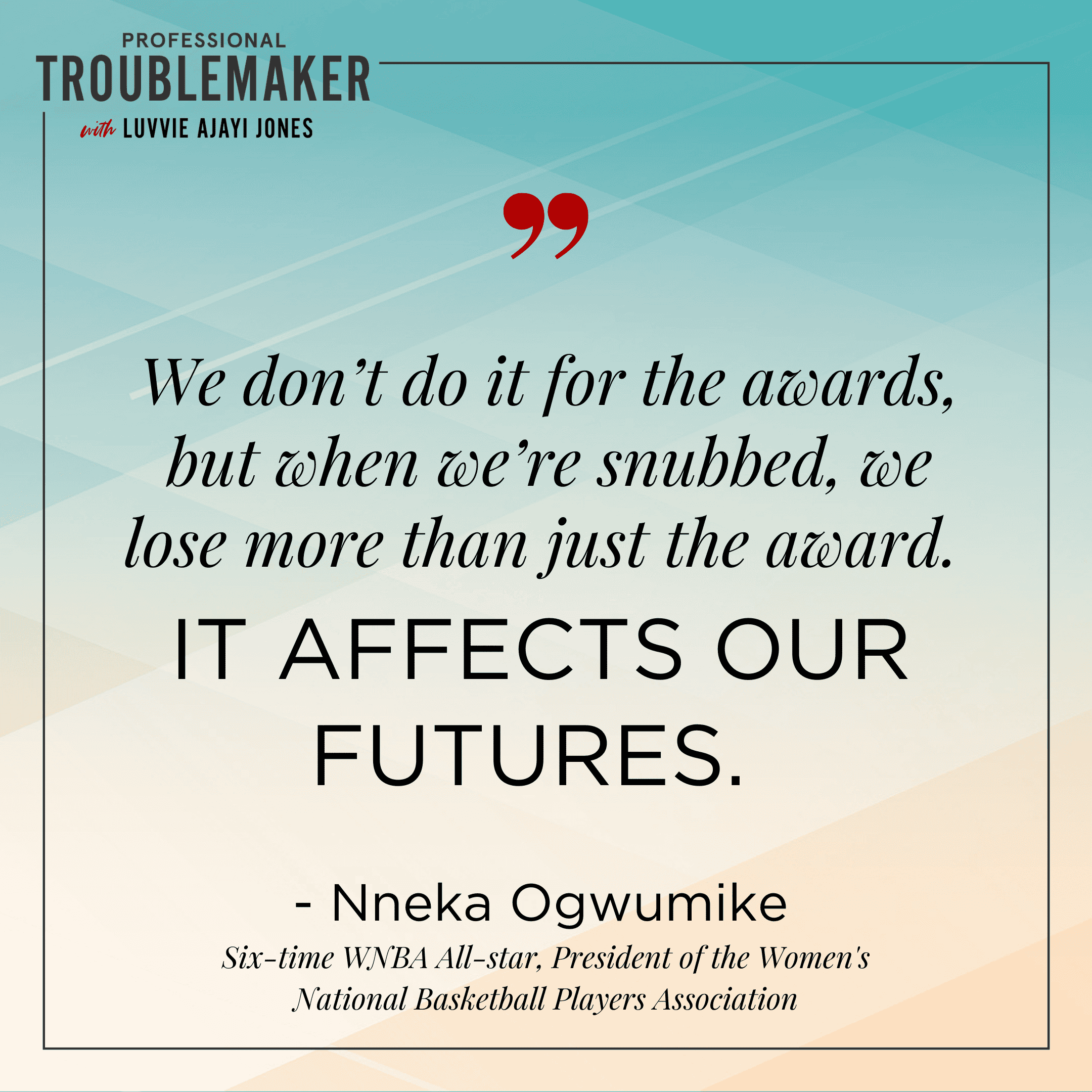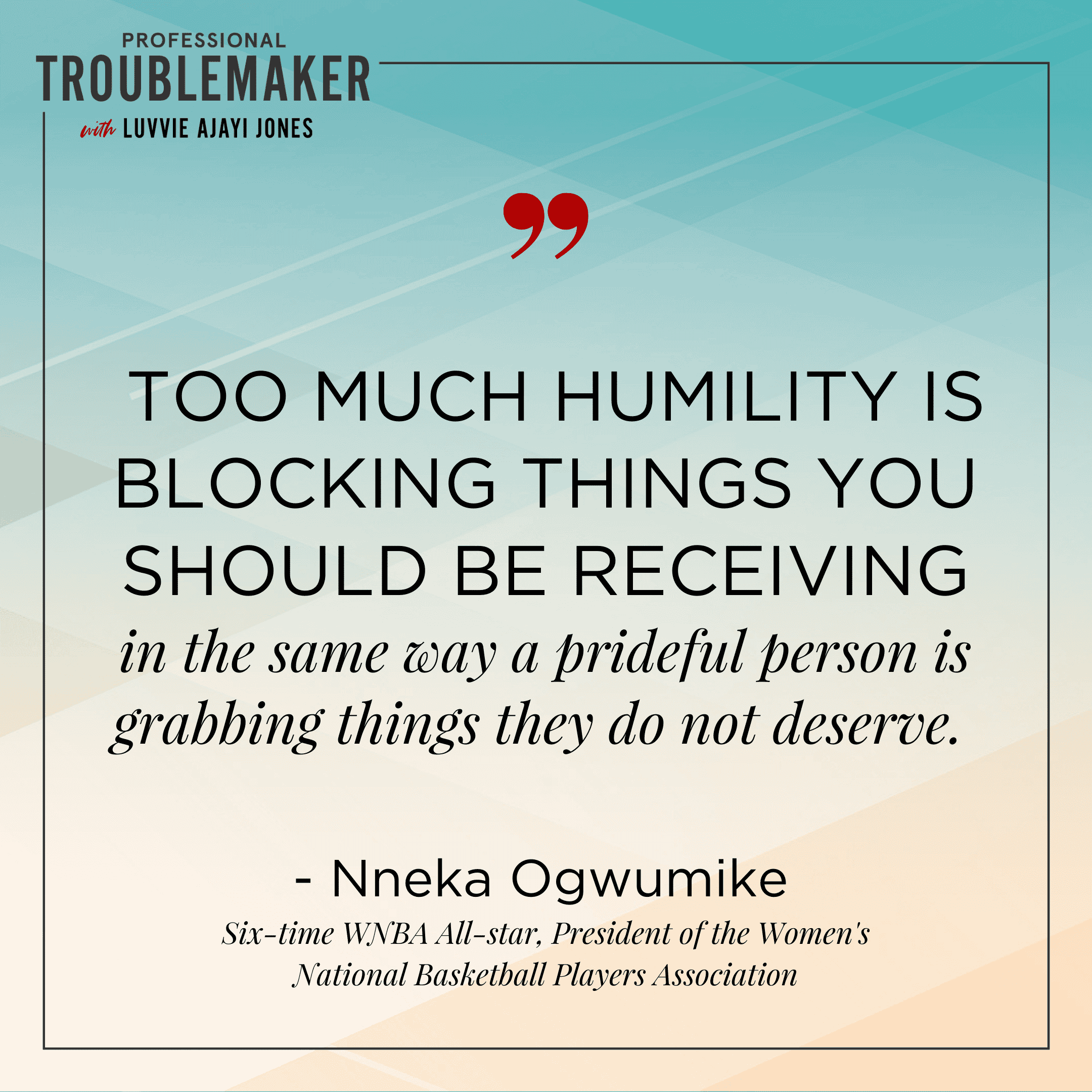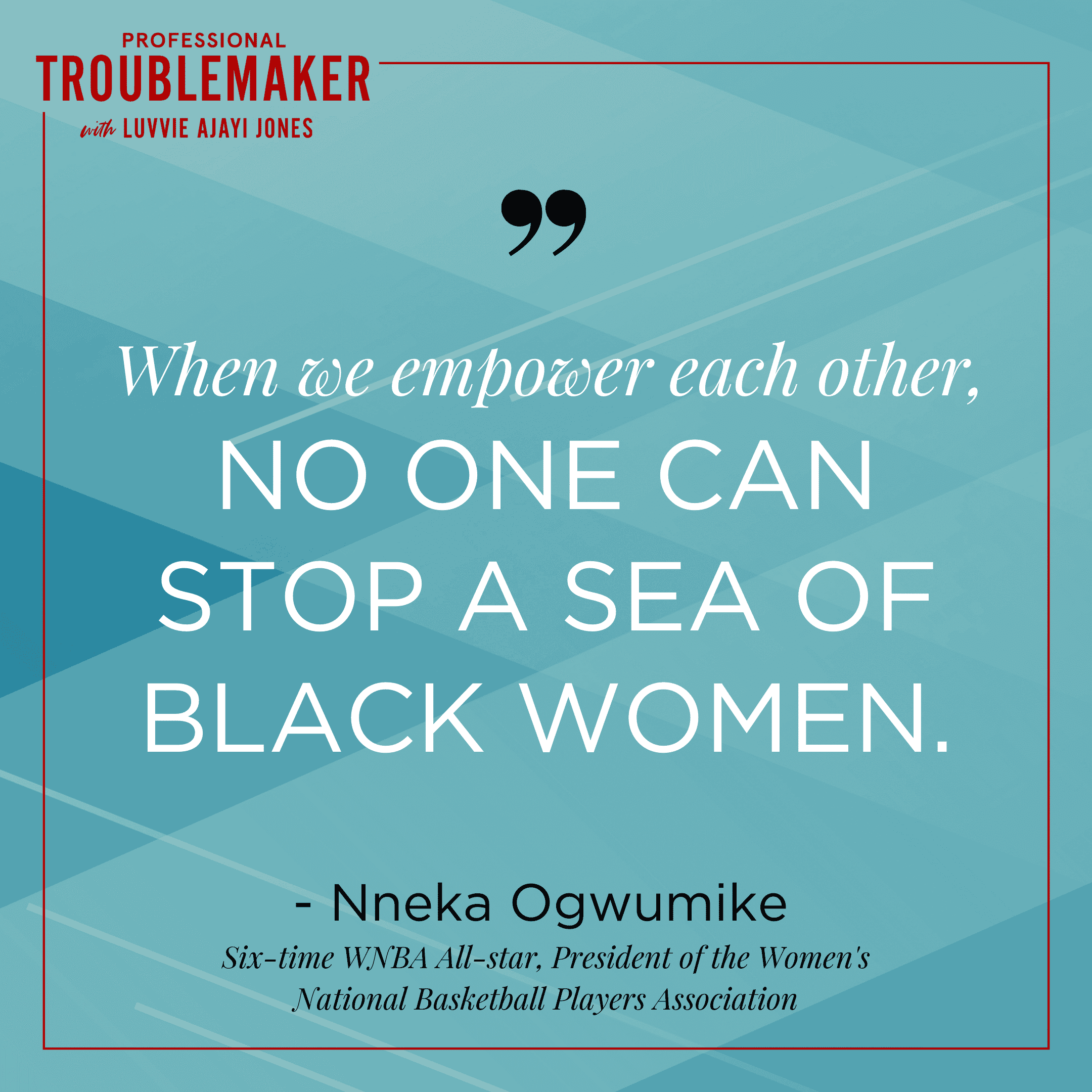Make sure you’re subscribed and that you rate and review! Share on social media using the hashtag #ProfessionalTroublemaker. Also, follow the podcast on Instagram! Email info@aweluv.com with feedback or questions!

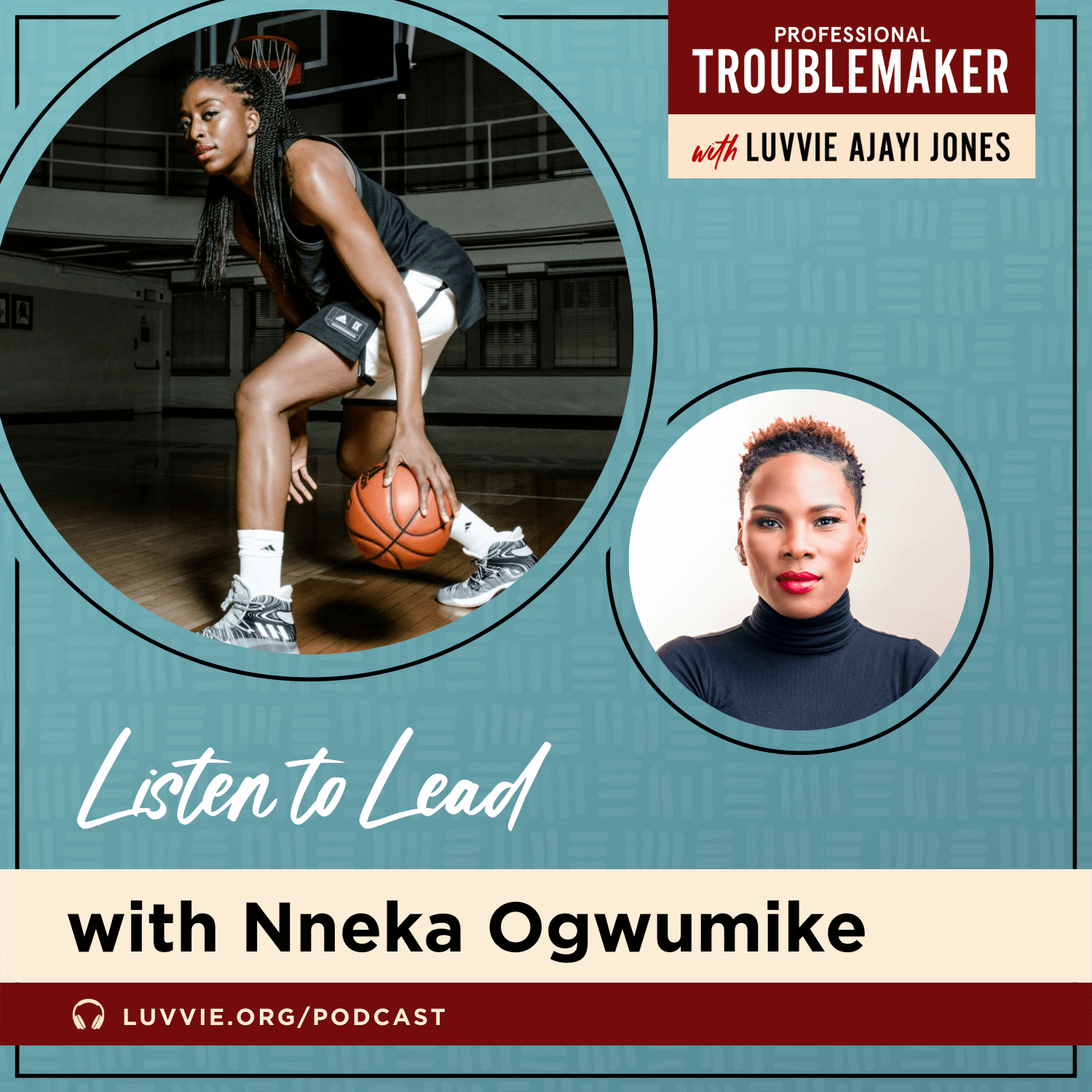
About the Episode
Leadership is a verb. And choosing to lead by listening and empowering others is a big part of that. Today’s guest Nneka Ogwumike is the definition of a Professional Troublemaker. She’s a force to be reckoned with on and off the court. Nneka is a former Number 1 WNBA draft pick, six-time WNBA All-star, and president of the Women’s National Basketball Players Association. She’s passionate about fighting for Black women, athletes, and those whose voices aren’t affirmed and has made speaking truth to power a life habit.
View this post on Instagram
Nneka also shares the pain she felt when being passed over for the Olympic basketball team. There is a difference between just losing an award and being snubbed. And she was snubbed in this case. But Nneka continues to lead the WNBA players association with grace and dignity.
This is a powerful conversation all about listening, leading, and doing what matters most.

We don’t do it for the awards, but when we’re snubbed, we lose more than just the award.
It affects our futures.
About the Guest
Nneka Ogwumike
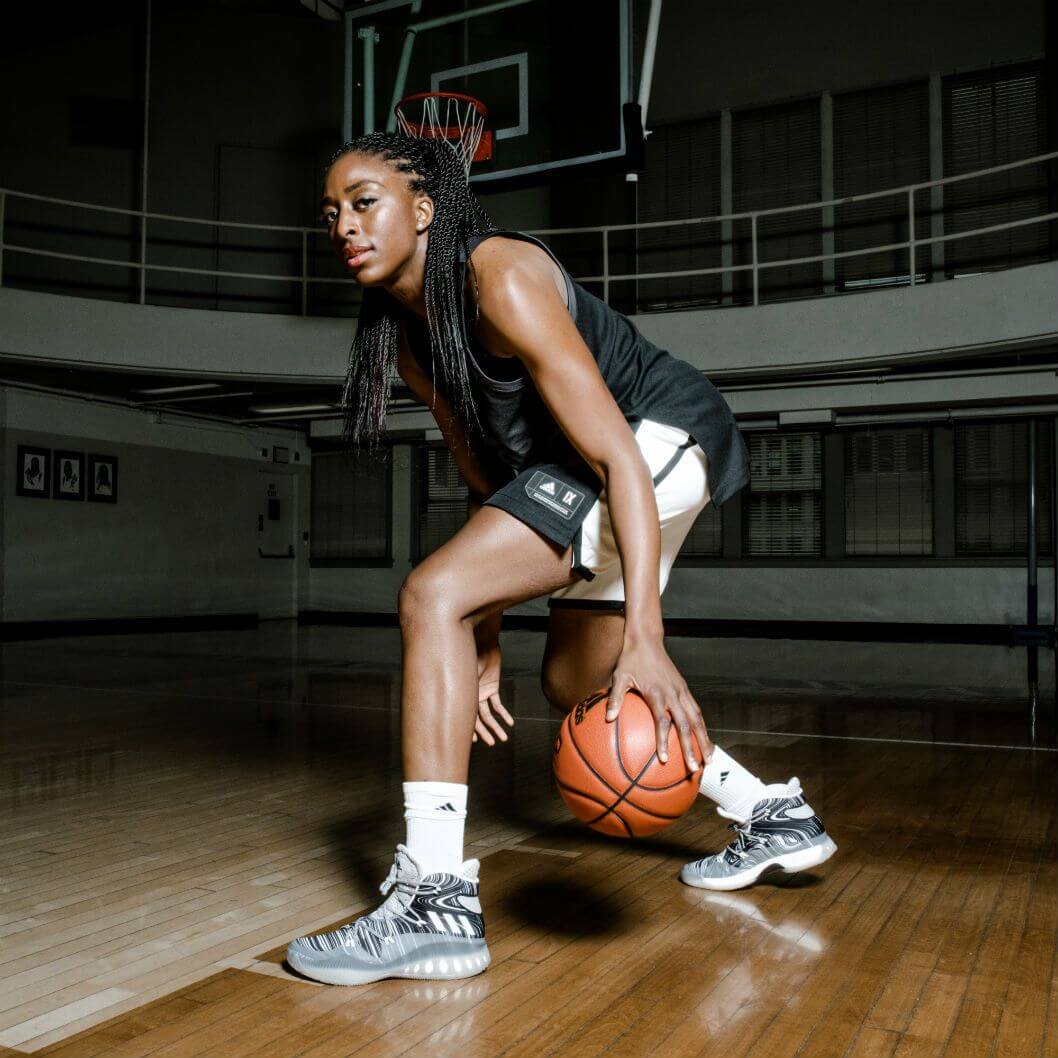
Nneka Ogwumike is the 2016 WNBA MVP, WNBA Champion, and 1st overall pick of the Los Angeles Sparks in the 2012 WNBA Draft. Nneka is on a mission to inspire others to discover their greatness with an open heart, enthusiasm, integrity, courage, and compassion.
She is currently serving as President of the WNBA Players’ Association (WNBPA) and successfully led the group in its renegotiation of a groundbreaking WNBA’s Collective Bargaining Agreement.
She is a six-time WNBA All-Star, three-time All-WNBA selection, three-time All-Defensive WNBA selection and was the 2012 WNBA Rookie of the Year.
A graduate of Stanford University with a BA in Psychology, Nneka led the school to four consecutive Final Four appearances.
Hailing from one of sport’s most dynamic families, Nneka is the oldest of four sisters who have played Division I basketball.
Transcript

Subscribe to Professional Troublemaker


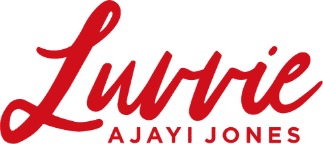
 View the Transcript
View the Transcript